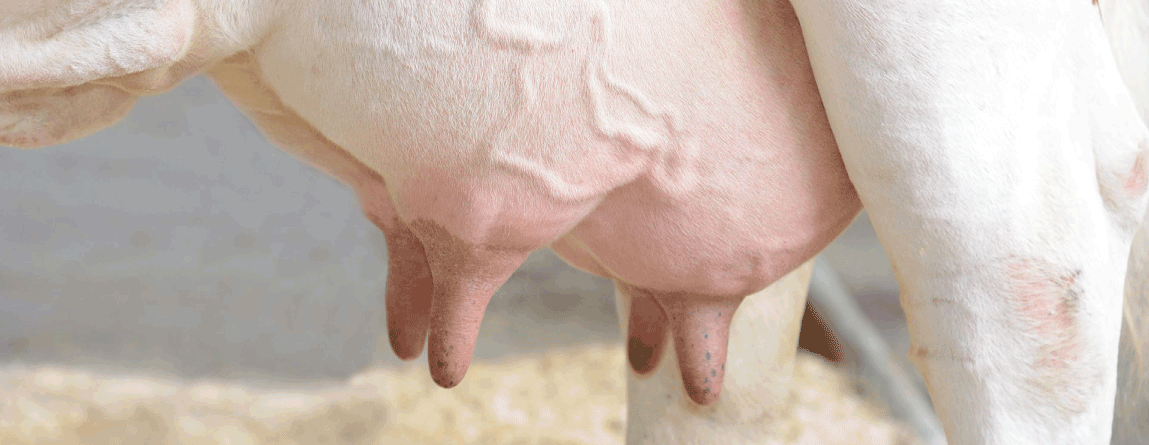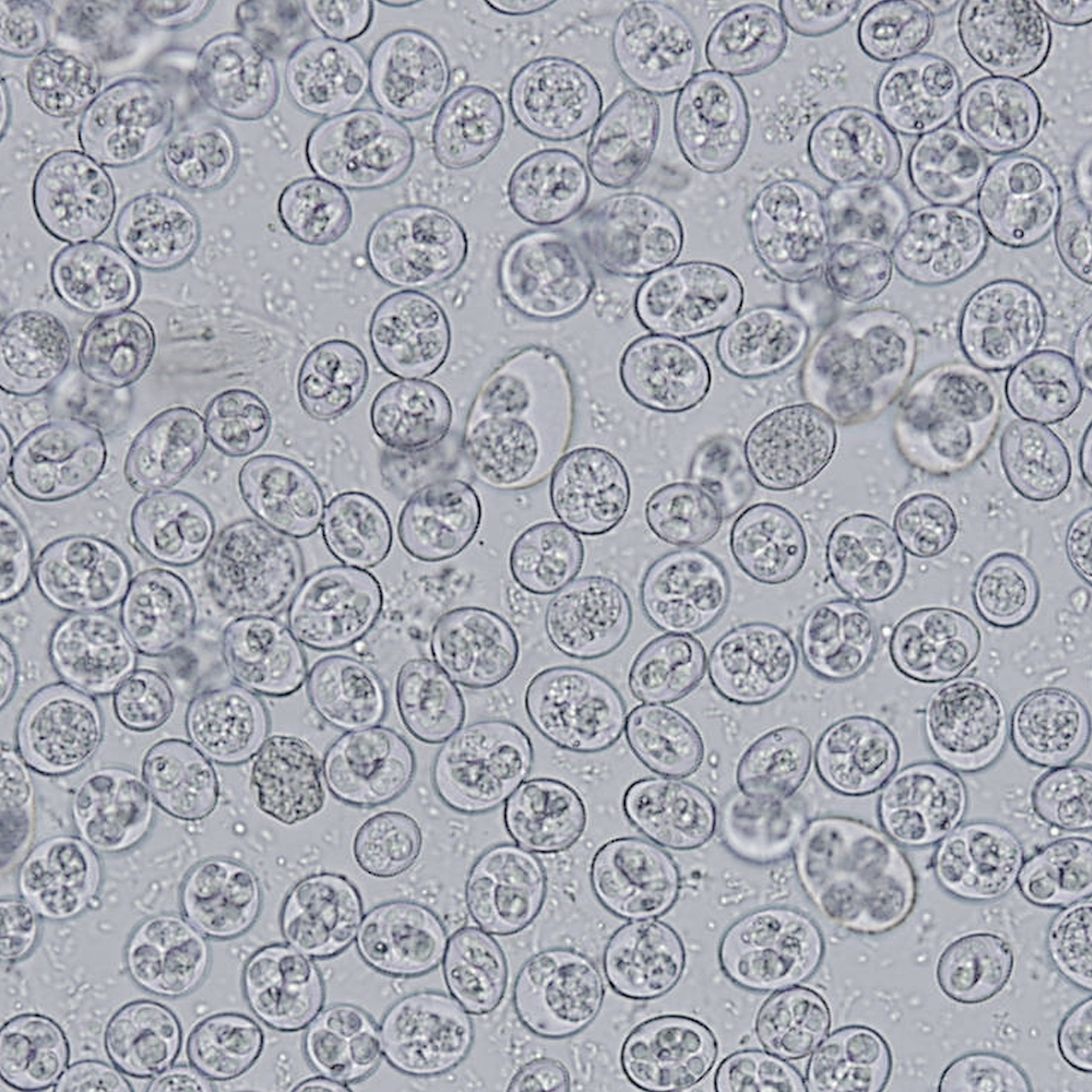
RUMINANTS
FIND THE BEST SOLUTION

Cryptosporidiosis
Cryptosporidiosis is a dangerous disease caused by an intracellular protozoan that damages the epithelial cells of the small intestines. As it can also occur in humans, early detection of the pathogen and safety precautions are very important. Cryptosporidiosis most commonly affects calves between five and 20 days of age and manifests itself as watery diarrhoea, sometimes with an admixture of blood or mucus. Sick calves show a painful urge to stool, become lethargic, and develop rapid dehydration and metabolic acidosis. Older animals (over 2 months) are usually asymptomatic and become carriers (shedding oocysts). Above 4 months of age, the incidence decreases significantly (the disease is asymptomatic).
The main cause of illness in calves in the first weeks of life, especially in the period from birth to the second week of life, often ending with falls, is diarrhea, which is the result of infection with pathogenic strains of Escherichia coli bacteria, rotaviruses and coccidiosis or cryptosporidiosis. The disease of digestive tract caused by parasites of the genus Eimeria by Coccidia of the genera Cryptosporidium and Neospora are also found in cattle. Parasites of the genera Eimeria and Cryptosporidium are intestinal pathogens that cause acute diarrhoea, which can lead to a significant reduction in weight gain and increased calf mortality. Observations indicate that the Cryptosporidium parvum parasite is the cause of up to more than 50% of diarrhoea in young calves.
If cryptosporidiosis is suspected, veterinary intervention is required. The disease can be detected by examination of faeces or intestinal epithelial cells. In practice, rapid field tests based on an immunochromatographic method are popular for detecting pathogens that cause diarrhoea in calves (E. coli K99, rotavirus, coronavirus, C. parvum). Fecal flotation testing combined with special stains can also be used. On this basis, a treatment targeting a specific pathogen can be implemented.

In Poland, halofuginone is used for the treatment of cryptosporidiosis and should be administered for 7 days. In addition, electrolytes and probiotic preparations can be administered to speed up the animals’ recovery and, if present, metabolic acidosis can be reduced.
It is important to feed calves regularly with milk or good quality milk replacer during treatment, which helps to rebuild damaged villi and protects sick calves from excessive emaciation.
The prevention of cryptosporidiosis is based primarily on the principles of biosecurity and the feeding regime:
- thorough cleaning and disinfection of equipment and stalls,
- maintaining low humidity in buildings,
- use of protective clothing,
- avoiding excessive stocking density,
- limiting the contact time of newborn calves with their mothers,
- the use of specialised additives (especially herbal) and compound feed containing feed additives for the proper functioning of the digestive tract,
- early colostrum feeding of calves,
- isolation of sick animals.
Cryptosporidium oocysts, as with the pathogens that cause coccidiosis, are highly resistant to environmental factors, and can survive for months in bedding and substrate, posing a threat to calves. It is necessary to clean and disinfect the environment on a regular basis, using products with proven activity against cryptosporidium oocytes, flaming, and keeping calves in dry, clean pens.
Feed additives containing probiotics and phytobiotics can also play a role in the prevention of cryptosporidiosis. Plants contain many types of active substances, or compounds, with medicinal effects.
Some herbs are known for their effectiveness against parasites. For example, mugwort (Artemisia annua) can be effective in the prevention of protozoan infestations.
Another plant with strong antibacterial, antifungal properties and active against oocysts are white mustard (Sinapis alba) and calamus (Acorus calamus), which have a broad spectrum of activity. Soapwort (Saponaria officinalis) thanks to it’s properties actively supports terpenes and glucosinolates in the elimination and reduction of the number of cryptosporidium from the host body. It should be remembered that only standardized herbal extracts and plant micronisates will effectively be included in modern environmentally friendly phytotherapies as standards of feed mixtures and dietary additives for calves and small ruminants practices.

